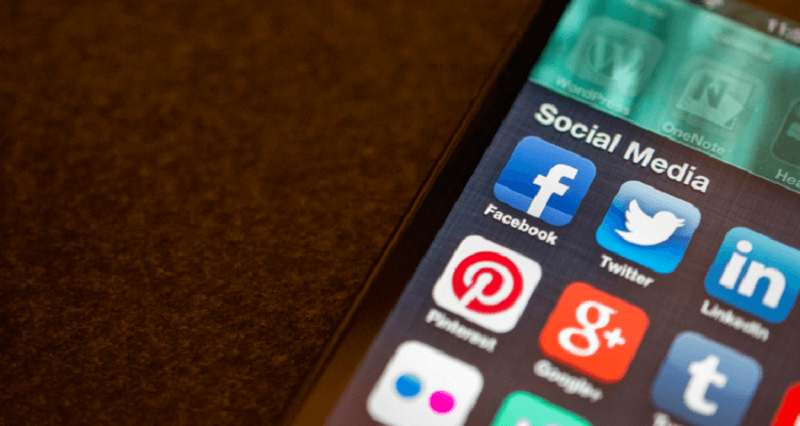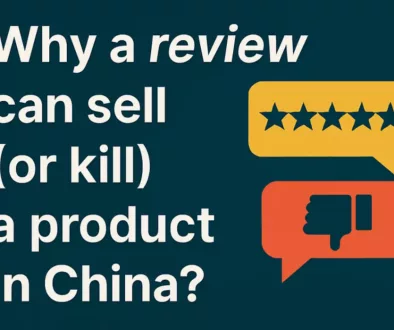Communicating In China In 2018: 5 Ways Foreign Companies Can Avoid PR Disasters
In 2018, we live life via smartphones and social media. Information spreads at the click of a button and companies today must navigate the tides of consumer opinion and preference in a far more proactive and dynamic way than ever before. We are now in an era of crisis management; whatever you say will be used against you.
In 2018, we live life via smartphones and social media. Information spreads at the click of a button and companies today must navigate the tides of consumer opinion and preference in a far more proactive and dynamic way than ever before. We are now in an era of crisis management; whatever you say will be used against you.

Foreign companies in China are perhaps even more heavily scrutinized under the media spotlight than their local peers. Perhaps one reason for this is that foreign companies have such high expectations placed on them by Chinese consumers and create high standards for themselves through their various marketing campaigns. The generally held view is that if you are a foreign product or brand, you are using premium ingredients and subject your product to the most rigorous levels of testing. If you are in the food industry, this means it is trusted, safe and free from harmful substances. If you are in the appliance industry, this means it is durable, advanced and of the highest quality. This is why Chinese consumers – the now tritely termed ‘wealthy middle class’ – are happy to pay the premium price.
We are now in an era of crisis management; whatever you say will be used against you.
Culturally, there is indeed the concept of 从众 congzhong, the concept which captures the idea of following the majority or going along with public opinion. In English, it roughly equates to the idea of a ‘herd mentality’. However, it is naïve to think that Chinese consumers are easily led and manipulated. Today, they are discerning, cynical, and arguably the least forgiving consumer demographic on the planet. This herd mentality can work wonders for your brand or product if you have won favor with the right crowds and demographics (see our previous articles for more insights on Key Opinion Leaders or ‘KOLs’ and how effective Chinese KOL marketing is). The corollary however is that the tide of public opinion can very quickly turn against you. The idea of 从众 congzhong, combined with the pervasiveness of social media in China, creates a perfect storm for PR disasters to happen in seconds. In China, you cannot underestimate the importance of proper PR and marketing expertise.
Today HI-COM gathers information from leading China PR and marketing experts for their top tips on how to communicate in China and avoid PR disasters.
1. Be extremely vigilant of your global social media and ‘cross-posting’
Foreign companies and brands with a presence in China must be extremely observant of their global social media as a whole; every platform. It is widely known that Facebook, Twitter and Instagram are blocked in China by its nationwide firewall, with WeChat and Weibo the primary social media platforms here. However, it is naïve to think that posts don’t spread from one platform to another. “Social media has made conversations truly global, and not all international companies have fully adapted”, says Alex Wilson, Shanghai-based Strategist at Hill+Knowlton Strategies. “As we all saw with United Airlines last year, a reputational issue that starts in one country can easily spiral and take on a life of its own on the other side of the world. Corporate executives make it a point to check Twitter and Facebook regularly, but can they honestly say they have access to up-to-the moment, accurate updates from Weibo and WeChat? Managing a crisis on social media is possible, but it requires completely new structures and processes to get around obstacles like language and time difference. A lot of companies still have a long way to go, and in all honesty I’m not quite sure they realize it”.
Social media has made conversations truly global, and not all international companies have fully adapted
One ‘brand’ that recently had a PR misstep is American supermodel and social media celebrity, Gigi Hadid. In February last year a video posted on Instagram went viral of the supermodel mimicking the facial expression on a Buddha-shaped cookie. Many perceived the gesture as racially insensitive or even offensive to Asian people, and the model came under fire for making the ignorant gesture. She posted an apology on Chinese social medial platform Weibo:

While one video or one post may seem harmless enough, it can run the risk of going viral and alienating or offending hundreds of millions of Chinese netizens. Brian West, Global Managing Director, Crisis Management at PR firm, FleishmanHillard, advises to build your crisis strategy around social media. “Don’t skimp on social media monitoring. Staying on top of company-related buzz can be hard in China, as Western executives who can’t read Chinese won’t be able to get a feel for the situation by looking at Sina Weibo. Make use of a good social media listening tool – one that works in different languages, translates accurately, and can track issues (and antagonists) in real time”. It is vital to use reliable translators to track how your brand and products are being perceived in various regions and social media tools are a way to track unfiltered and genuine feedback and consumer sentiment.
Make use of a good social media listening tool – one that works in different languages, translates accurately, and can track issues (and antagonists) in real time
2. Have a Consumer Rights Day or “315” Action Plan

World Consumer Rights Day is observed annually on March 15 and is a day to raise global awareness about consumer rights and needs. While it may not have the same hype in the West, in China it is almost a national celebration, known as “315” and is marked every year by a nationally televised program watched by millions of Chinese consumers eager to see unfair practices by popular brands exposed and mocked. Brands that have come under fire on 315 include Apple, Nike, Balenciega, Guess and Mercedes-Benz; no brand is safe. The two-hour show is a mix of undercover reports, with entertainment including song-and-dance. It is basically a chance for Chinese consumers to thumb their noses at big brands. Companies should be prepared to take swift action if they have been caught in a 315 fire. James Feldkamp, Shanghai-based CEO of independent China consumer watchdog Mingjian, says: “Pretty much all the big corporations have their PR machines ready to jump into action because they’ve seen what happens when companies are not prepared.”
3. Maintain Positive Government Relations
Don’t underestimate the significance of having good government relations, and don’t underestimate the risk of having bad government relations. The Chinese economy is highly unique to any other economy in the world, in terms of its size, speed and how intrinsic central government control is. Negative relations with the central government can land you blacklisted and barred from local procurement, impacting wider business relationships with other businesses. Business anywhere in the world is an intricate web of social relationships but in China, social relationships are interwoven with government relationships, and are a highly valued commodity that can obstruct you from winning tenders without you knowing it.
4. Beware of whistle blowers

With the pervasiveness of social media there are more and more people crafting a career out of being whistle blowers. As soon as they encounter questionable marketing or business practices, they approach the company for money threatening to report the company to the authorities where the company runs the risk of being fined or having their business license revoked. On a related point, it is vital to have positive workplace relations and a strong morale or team culture where there is openness between management and staff. A disgruntled staff member can turn into a business-destroying whistle blower given the right conditions. An example of this is what happened with Farine flour scandal of 2017. The once popular French artisanal bakery based in Shanghai had to abruptly closed its doors after a former employee went public with videos and allegations about how the bakery used expired flour and had poor hygiene levels, such as a kitchen riddled with mold and a rat problem.
5. Know the local laws
Expert advice on China’s marketing guidelines is crucial to avoid getting on the wrong side of regulators and the central government. For further insights on marketing in China, see our article on banned marketing terms in China and how to access online resources which will tell you terms to avoid, and of course, consult with your China legal and business experts.


